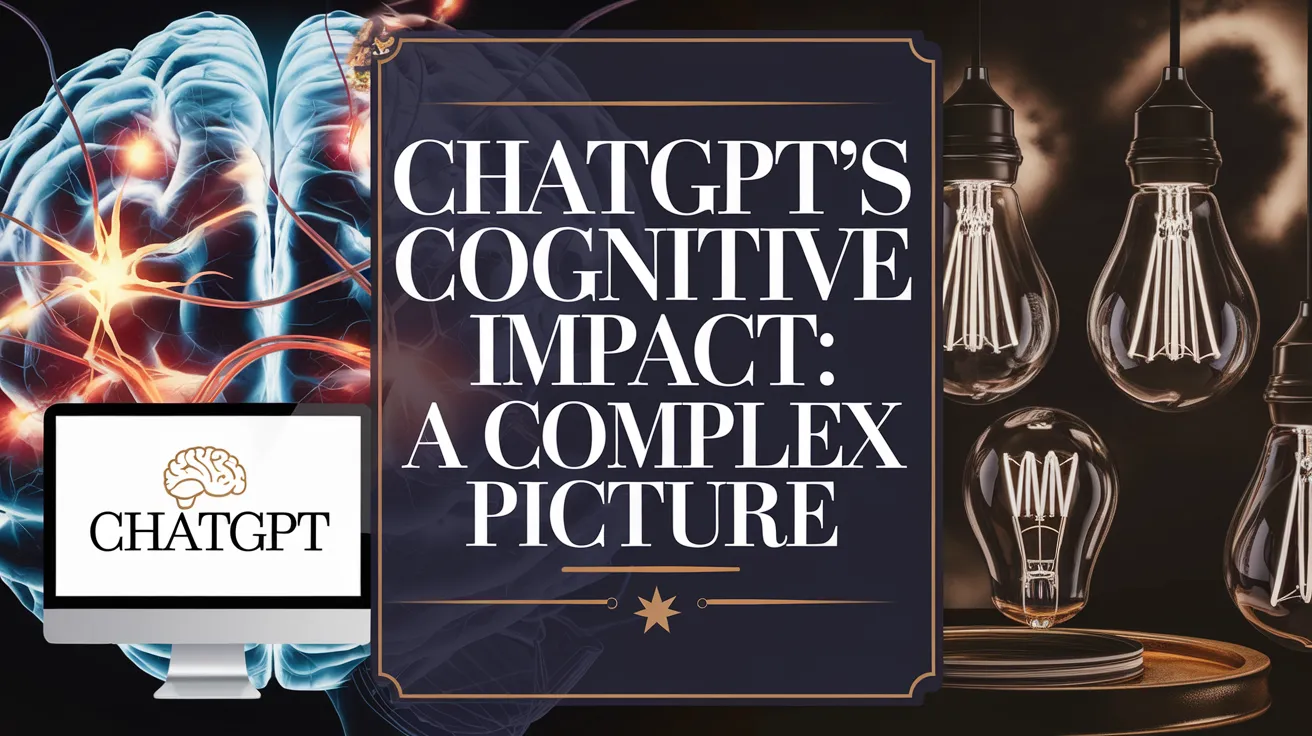ChatGPT’s Cognitive Impact: A Complex Picture

The discussion surrounding the influence of artificial intelligence (AI) technologies, particularly ChatGPT, on learning and cognitive development has intensified since its launch nearly three years ago. Some view AI as a resource for personalized education, while others warn it may lead to academic dishonesty. Chief among the concerns is the idea that reliance on AI could contribute to a decline in critical thinking skills.
A recent study conducted by researchers from MIT examines this issue, proposing that utilizing ChatGPT for tasks such as essay writing could result in what they term “cognitive debt” and a potential decrease in essential learning skills.
The study involved 54 adults tasked with writing a series of three essays using three different methods: AI (via ChatGPT), a traditional search engine, or a brain-only approach. To assess the cognitive engagement levels, the researchers analyzed electrical activity in the participants’ brains and performed linguistic evaluations on their essays.
Results indicated that participants who employed AI displayed significantly lower cognitive engagement compared to the other groups. This cohort also struggled more with recalling quotes from their essays and reported a diminished sense of ownership over the content they produced.
Interestingly, participants were later switched into different groups for a fourth essay. Those who had previously relied on AI, once asked to revert to using only their cognitive abilities, performed below expectations compared to the others, suggesting a long-term impact from their earlier reliance on AI.
However, caution is warranted in interpreting these findings. Only 18 participants successfully completed all tasks, indicating that further research is necessary to confirm the initial conclusions. The study’s design may highlight confounding factors. For instance, the brain-only group likely improved through familiarization with the task over time. Consequently, when the AI users transitioned back to traditional writing, they were unaccustomed to the process, inhibiting their performance.
The perception that AI usage inevitably leads to diminished cognitive capabilities, as the study might suggest, is a nuanced matter. Students may achieve cognitive improvements through AI, particularly if appropriately integrated into their learning processes. It remains crucial, however, that educators evolve assessment methods to maintain rigorous engagement, much as they did when calculators became commonplace.
When calculators were introduced in the 1970s, the educational system adapted by increasing the complexity of assessments, compelling students to engage more deeply with the material, even when using these new tools. The reluctance to set similarly high expectations and adapt assessments today means that students still face traditional challenges while simultaneously having the option to offload learning responsibilities to AI.
The implications are significant. Like calculators, AI has the potential to aid in completing previously challenging tasks, but it requires thoughtful integration to foster deeper engagement with material rather than merely producing “the same old” outputs. The participants in the MIT study seemed to resort to producing standard essays rather than exploring new content or ideas.
As we navigate these challenges, it is crucial to recognize that learning to effectively use AI can redefine critical thinking and problem-solving capabilities. Relying solely on traditional essay writing will no longer suffice as an illustration of these skills. Instead, students must develop an understanding of when and how to harness AI effectively—a vital competency that promotes the growth of genuine creativity and critical thought.